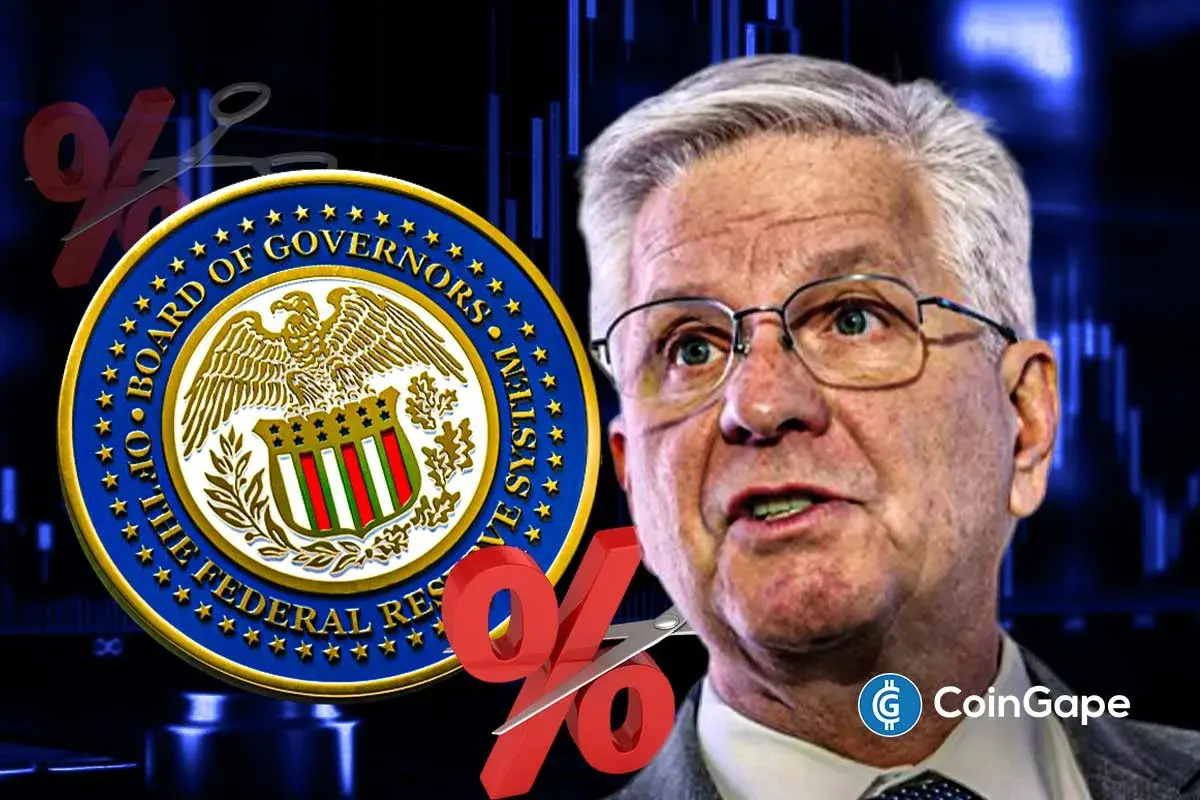US Congress Accelerates Crypto Oversight with New Stablecoin Bill

Highlights
- The STABLE Act aims to unify stablecoin regulations between the House and Senate for clearer crypto oversight.
- The Senate stablecoin bill gains bipartisan support, advancing toward a final vote by August.
- Wyoming plans to launch a state-backed stablecoin, aiming to offer a low-cost, fast digital payment alternative.
The U.S. Congress is moving forward with efforts to regulate the cryptocurrency industry, with a particular focus on stablecoins. A new stablecoin bill has been introduced in the House of Representatives, building on previous legislative efforts on stablecoin regulation.
This bill aims to provide clearer guidelines on how companies can issue dollar-denominated digital tokens and set the stage for broader crypto oversight.
House Version of Stablecoin Bill Released
The U.S. House of Representatives has moved forward in digital asset regulation efforts after it published its stablecoin bill text to the public. The two congressmen, Bryan Steil and French Hill introduced stablecoin legislation, that dictates rules for digital tokens which bind their value to the U.S. dollar.
Steil who leads the Financial Services Committee crypto panel stated the bill functions to unite stablecoin legislative frameworks between the House and Senate.
The legislation known as the Stablecoin Transparency and Accountability for a Better Ledger Economy (STABLE Act) follows Congress’ ongoing development of digital asset regulations. According to Hill the bill constitutes part of an extensive program to establish regulatory clarity for cryptocurrency operations. He stated that the bill aims to establish financial regulations which require stablecoin companies to maintain transparency while protecting consumers and the system.
Senate Stablecoin Bill Moves Forward
There has been some progress made on the stablecoin regulation by the Senate as the bill was moved to the Banking Committee where it enjoyed bipartisan support. This bill has made its way to the Senate floor, awaiting the senate action. Rep.
Representative Tom Emmer, a crypto supporter in Congress, noted that even though the two bills are somewhat similar but have distinct features, such differences are not significant and can be sorted out as the bills progressed through the legislative procedure.
Lawmakers are looking forward to passing the stablecoin laws in the next few weeks especially following US President Donald Trump directive on stablecoin regulation. Emmer remained optimistic that the bill will be finished by August. This momentum is part of a wider effort in Congress to provide more stability in the regulation of cryptocurrencies so that companies and users have better frameworks to follow.
Efforts to Clarify Crypto Asset Regulations
Additionally, Emmer also reintroduced the Securities Clarity Act as another bill targeting how cryptocurrencies fit into the domain of securities.
This bill, sponsored with republican partner Darren Soto, is to clarify legal uncertainty existing in the United States concerning the qualification of digital assets under the securities law. Emmer thus urged for better formalism saying that business requires legal predictability to the effect that they are able to conduct their operations within the legal framework.
Emmer’s actions are in line with other pieces of legislation that have been made to determine how digital assets should be regulated within the U.S. financial system. These steps are regarded as crucial in offering that legal certainty that many cryptocurrencies and blockchain start-ups have claimed to need to enhance business growth and development.
Wyoming and Other States Enter the Stablecoin Market
As federal lawmakers push forward with stablecoin regulations, states are also taking steps to position themselves as leaders in the crypto space. Wyoming, in particular, is moving toward launching its own state-backed stablecoin.
Governor Mark Gordon has announced plans to issue a stablecoin fully backed by U.S. dollar reserves, aiming to provide a fast, low-cost alternative for digital payments.
The state’s move is part of a broader trend, with other companies and states working on their own stablecoin projects. Custodia and Vantage Bank, for example, recently launched the Avit stablecoin, backed by U.S. dollar reserves and based on the Ethereum blockchain. These efforts reflect the growing interest in stablecoins as a way to bridge the gap between traditional financial systems and the emerging digital economy.
- Fed’s Chris Waller Says Support For March Rate Cut Will Depend On Jobs Report
- Breaking: Tom Lee’s BitMine Adds 51,162 ETH Amid Vitalik Buterin’s Ethereum Sales
- Breaking: Michael Saylor’s Strategy Makes 100th Bitcoin Purchase, Buys 592 BTC as Market Struggles
- Satoshi-Era Whale Dumps $750M BTC as Hedge Funds Pull Out Billions in Bitcoin
- XRP Sees Largest Realized Loss Since 2022, History Points to Bullish Price Run: Report
- Top 3 Meme Coins Price Prediction As BTC Crashes Below $67k
- Top 4 Reasons Why Bitcoin Price Will Crash to $60k This Week
- COIN Stock Price Prediction: Will Coinbase Crash or Rally in Feb 2026?
- Shiba Inu Price Feb 2026: Will SHIB Rise Soon?
- Pi Network Price Prediction: How High Can Pi Coin Go?
- Dogecoin Price Prediction Feb 2026: Will DOGE Break $0.20 This month?

















